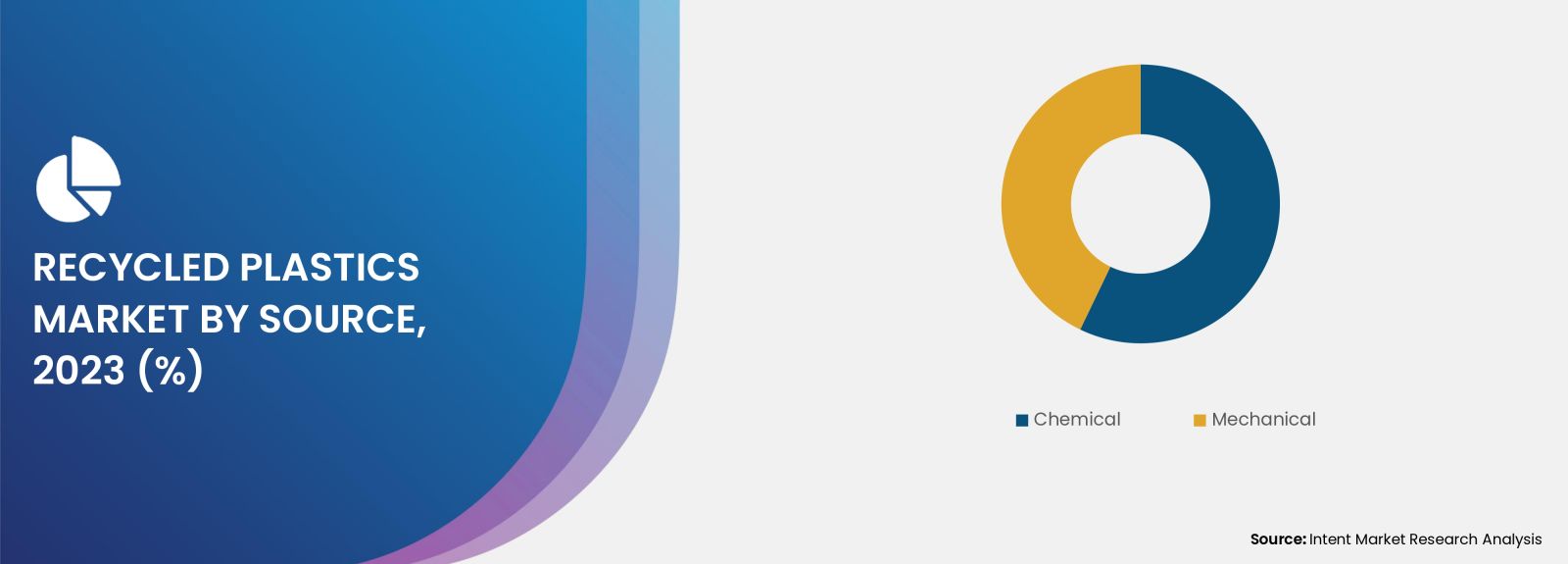Press Releases Details
The Recycled Plastics Market was estimated at USD 70.0 billion in 2023-e, and is projected to grow at a CAGR of 8.7% through 2030 to reach USD 121.7 billion. The concept of a circular economy, where materials are recycled and reused, is gaining popularity across the globe. Electrical and electronics industry is adopting this approach as the industry has generates a lot of e-waste. Incorporating recycled plastics into electronic devices contributes to a more sustainable and circular economy while meeting the demands of eco-conscious consumers and regulatory frameworks. The demand for affordable consumer electronics has surged, leading to an increase in demand for recycled plastics.

Mechanical recycling conserves natural resources by reducing the need for virgin plastics. It requires less energy and results in lower greenhouse gas emissions. This process diverts plastic waste from landfills and promotes a circular economy. It is cost-effective and versatile, with a variety of end-use possibilities. Additionally, it supports job creation and reduces environmental pollution. While it has limitations, mechanical recycling is an important component of sustainable waste management and resource conservation efforts.
Polypropylene is a widely used material in the manufacturing industry. It is used to manufacture automotive components, packaging and labeling materials, medical devices, and various laboratory equipment. This is because polypropylene has excellent chemical and mechanical properties, making it resistant to many chemical solvents, acids, and bases, and it has excellent mechanical strength.
Components made from polypropylene are also fatigue-resistant, which is ideal for the building and construction industry. Polypropylene is used to make plastic hinges, piping systems, consumer-grade daily-use products, mats, carpets, and rugs, among other things. The growth of the automotive, packaging, building, and construction industries is expected to drive the demand for recycled polypropylene over the forecast period.
Europe recycled plastics market growth is driven by the adoption of sustainable practices to move towards a circular economy by reducing the carbon footprint associated with the conventional method of plastic production. This is achieved by increasing plastic recycling in the region. The positive growth of plastic recycling in European countries is a result of landfill bans. European countries have extremely high landfill taxes due to which the cost of dumping sometimes becomes more expensive than plastic recycling. This scenario encourages the Europeans to get involved in the collection of plastic waste and plastic recycling.
Companies operating in recycled plastic market are involved in geographical expansion, product portfolio development, and mergers & acquisitions for the growth of the market. For instance, in November 2022, Plastipak opened a recycling investment at its manufacturing site in Toledo, Spain; converting PET flakes into food-grade recycled PET (rPET) pellets suitable for direct use in new preforms, bottles, and containers.
The global market is found to be significantly fragmented in nature owing to the presence of a large number of plastic waste recyclers across the globe including Alpek, Biffa, Cabka, Clean Harbours, Covetsro, Far Eastern New Century, Indorama Ventures Jayplas, Loop Industries, MBA Polymers, Plastipak, Republic Services, Shell, Stericycle, and Veolia.
TRENDING REPORTS
